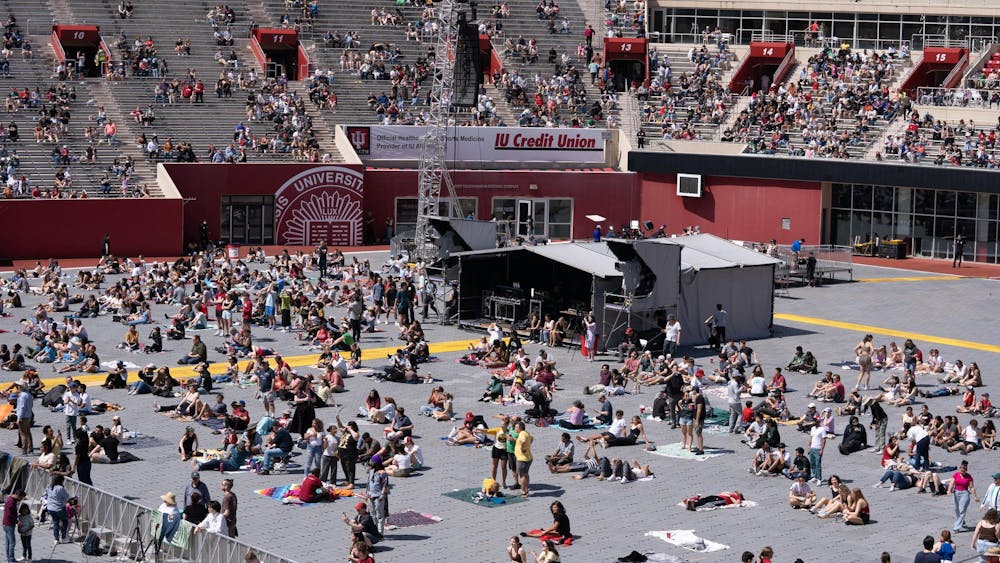As residents of the City of Bloomington address free speech in public forums, the IU Student Association is working to make campus a friendlier space for students to speak out.
On Sept. 22, Bloomington City Council President Isabel Piedmont-Smith asked a resident to leave the council’s regular meeting because of unruly conduct. Council Attorney Daniel Sherman said it was the first time in 20 years he had seen someone escorted from a meeting; the same night the council voted to amend its rules regarding open public forum.
“Because this is a limited public forum, certain rights are attached to these speakers,” Sherman said. “When it becomes political speech, it becomes protected.”
But how do First Amendment rights on IU’s campus compare to Bloomington City
Council sessions?
The Foundation for Individual Rights in Education, or FIRE, is an organization that rates universities according to the freedoms students have when speaking on campus.
During the summer, the organization gave IU a “yellow light” rating.
This designation means it found IU’s speech-related policies ambiguous, which they believe might lead to administrative abuse or arbitrary application.
This ranking sparked a reaction from IUSA. Murat Kacan, chief of communications for IUSA, issued a letter to the student body on July 28 in response to the rating.
In the letter, Kacan said IUSA strongly opposes any University rule that seeks to restrict students’ rights to free expression.
“We called FIRE that week and talked through every issue,” Kacan said. “We agreed that there were definitely areas of ambiguity. We don’t ever want free speech to be seen as a form of instigation.”
The University’s designation of free speech zones and what constitutes “fighting words” were too vague, members of FIRE said.
After reviewing the student code with IUSA, the organization found the University labels Dunn Meadow as a free speech zone, yet it fails to mention that all areas of campus are free speech zones as long as they don’t interfere with classroom curriculum.
The second area of ambiguity relates to literature that informs students where to report offensive language or expression. The language used was unclear regarding the procedures taken when a student brings forth a claim, members of FIRE said.
“The warning was ambiguous and didn’t clearly demonstrate the campus’ main goal, which is protection of free speech,” Kacan said.
While IUSA is working to improve these areas of ambiguity, the changes will require input from many groups on campus. Kacan said one major group IUSA is working with is the Gay, Lesbian, Bisexual and Transgender Student Support Services office, among others.
“The process is more important than the results,” Kacan said. “I’d rather know that the students’ rights are being protected.”
IUSA is also similar to the Bloomington City Council, Kacan said, in that it allows for public comment at its congressional meetings. Students can attend and voice their opinions about campus-related issues.
The next IUSA congressional meeting is at 8:15 p.m. Tuesday in the Kelley School of Business 200.
Jennie Peterson, a senior and vice president of the congress, said students who are not part of the congress can only speak at IUSA meetings if they have previously signed up on the speaker’s list 48 hours before the start of the session.
“Because it’s a student group, the way we govern ourselves is that we like to keep things in order,” Peterson said. “We uphold First Amendment rights almost 100 percent and prefer you follow our rules.”
IUSA battles free speech issues
Get stories like this in your inbox
Subscribe





